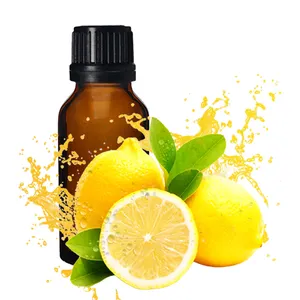
CNUS Free Sample Essential Oil Wholesale Dubai Perfume Use Fragrance Oil Nature Extraction Tea Tree Oil

Essential Oils Buyer Best Seller Wholesale Lavender Essential Oil Fragrance Essential Oil Manufacturer Lavender Oil Price For Candle Ma






















The essence of lemon oil is captured from the zest of the fruit, offering a vibrant and invigorating aroma that has been utilized for centuries in various cultural practices and industries. This essential oil is not only known for its refreshing scent but also for its versatility in applications ranging from aromatherapy to skincare and beyond. Lemon essential oil is a staple in the inventory of natural products due to its multifaceted benefits and uses.
Lemon oil is not a monolith; it encompasses a variety of products, each with unique characteristics. Citrus lemon oil is primarily extracted from lemon peels and is known for its high limonene content, which contributes to its robust, purifying properties. On the other hand, lemon grass essential oil, derived from the stalks of the lemongrass plant, boasts a more earthy tone, often used in holistic practices for its soothing effects. Citrus limon essential oil, another variant, is celebrated for its fine, zesty aroma and is frequently used in the culinary and perfume industries. Each type of lemon oil serves a specific purpose and is chosen based on the desired outcome, whether it be for its scent, flavor, or therapeutic properties.
The physical structure of lemon oil products is designed to preserve the integrity and potency of the oil. A typical bottle of lemon essential oil is amber-colored to protect the contents from sunlight, which can degrade the oil's quality. The oil itself is a concentrated liquid that operates through diffusion, application, or ingestion, depending on its intended use. For instance, in aromatherapy diffusers, the oil is vaporized to release its aroma, while in topical applications, it is often diluted and massaged into the skin for absorption.
The materials used in producing lemon oil are carefully selected for their compatibility with the oil's properties. Glass containers are preferred for storage over plastic to prevent leaching of chemicals into the oil. The choice of material speaks to the purity of the product, ensuring that the lemon essential oil retains its therapeutic qualities. The lemons themselves are often sourced from organic farms, where they are grown without synthetic pesticides, further enhancing the oil's natural benefits.
In the business realm, lemon oil has found its place in various industries. In the food and beverage sector, it's used to add a fresh zest to dishes and drinks. The cleaning industry values lemon essential oil for its natural disinfectant properties, incorporating it into eco-friendly products. In healthcare, it's utilized for its ability to uplift mood and improve concentration, making it a staple in office and commercial settings to enhance productivity.
Lemon oil is designed to perform a multitude of tasks. Its primary function is to impart its distinctive scent, which has been shown to have mood-lifting effects. Additionally, it serves as a natural antiseptic, making it effective in purifying and cleansing practices. In the realm of skincare, it functions as a clarifying agent, helping to remove dead skin cells and brighten the complexion.
The distinct characteristics of lemon oil lie in its high versatility and efficacy. One of the unique selling points is its concentration of natural compounds that provide antiseptic and astringent qualities. Unlike synthetic fragrances, lemon essential oil offers a pure and natural aroma, which is a significant advantage for consumers seeking organic and non-toxic products.
The benefits of lemon oil are manifold. It solves the problem of synthetic additives by offering a natural alternative for flavoring, scenting, and therapeutic needs. For the user, it brings about positive outcomes such as improved skin health, enhanced mood, and a safer, chemical-free environment.
To operate lemon oil effectively, it should be used with care. For aromatherapy, a few drops in a diffuser will suffice. When used topically, it must be diluted with a carrier oil to prevent skin irritation. For cleaning purposes, it can be mixed with water or vinegar to create a natural cleaning solution.
Selecting the right lemon oil depends on the intended use. For therapeutic purposes, a high-quality, therapeutic-grade lemon essential oil should be chosen. For culinary uses, food-grade oil is necessary. The oil's origin, extraction method, and purity are also important factors to consider.
Maintaining the quality of lemon oil involves storing it in a cool, dark place to prevent degradation. Cleaning the containers or diffusers used for the oil should be done with gentle, non-reactive cleaners to avoid chemical interactions that could affect the oil's properties.
Installation is not typically associated with lemon oil, but setting up a diffuser for aromatherapy involves filling the device with water, adding the oil, and ensuring it's placed in a stable location where the aroma can disperse effectively throughout the space.
Lemon oil is a boon for the skin, thanks to its antiseptic and astringent properties. It helps in treating and preventing acne, reducing excess oil, and brightening the complexion. The antioxidants in lemon citrus essential oil also aid in fighting signs of aging, while its vitamin content nourishes and repairs the skin.
When incorporating lemon oil into products, it's crucial to consider its phototoxicity. Exposure to sunlight after applying lemon essential oil can cause skin irritation or hyperpigmentation. It's also important to ensure proper dilution to avoid adverse reactions, especially in sensitive individuals.
To ensure the quality of lemon oil, buyers should look for suppliers who provide comprehensive product information, including extraction methods, purity levels, and ingredient sourcing. Certifications and lab reports can also be indicators of quality, as they confirm that the lemon essential oil meets industry standards.